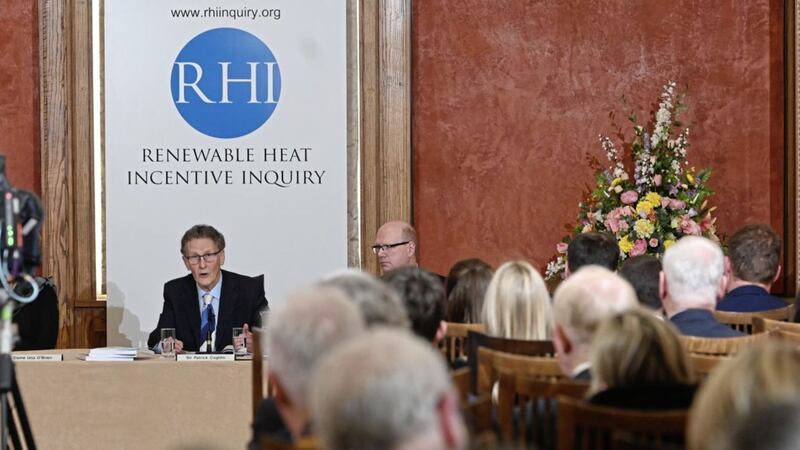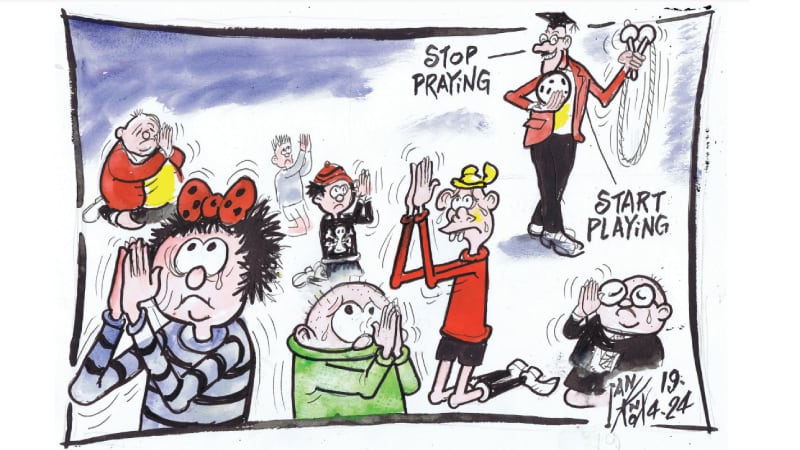THE date Friday 13th is considered unlucky by some, but many who faced the glare of scrutiny from the RHI inquiry will be quietly relieved.
Usually, the release of a report investigating a scandal that led to a government's collapse would be the main news focus for the public.
It was thus with fortunate timing for those criticised in the RHI report that its publication has been wholly overshadowed by the pandemic health crisis of the coronavirus.
News prominence was further reduced when, just hours before the report's release, Deputy First Minister Michelle O'Neill unilaterally called for Northern Ireland school closures to stem the outbreak.
Inquiry chair Sir Patrick Coghlin insisted that releasing the report on a Friday afternoon was not "in some way contrived in order to bury bad news", but instead simply a matter of logistics and the availability of panel members.
Regardless of the timing, this report was never going to threaten another political crisis like the circumstances three years ago which led to it being commissioned.
Spoiler alert: There are no big revelations here. The facts of this report were already known – a benefit of how the inquiry's extensive work was largely carried out in public.
The report's impact has also been lessened because many of the key names in this debacle shuffled off the stage during Stormont's prolonged absence.
Andrew Crawford resigned as a special adviser and after a period advising on Brexit policy, no longer works for the DUP. Former minister Jonathan Bell failed to be re-elected in 2017. Timothy Johnston became the DUP's chief executive, but has not been reinstated as a Spad.
The question was always what did Sir Patrick think about all he had heard and read, what conclusions would he draw – how would he apportion blame for this mess?
In the end as expected, responsibility for the failings of RHI were multiple, complex and spread thinly.
Those who do face criticism in this report will likely be very pleased that the language used is breathtakingly restrained. Some of the strongest words of disapproval across its 656 pages are "inappropriate", "unacceptable" and "not very impressive".
RHI's flaws "lay not just with one individual or group but with a broad range of persons and organisations" and were due to an "accumulation and compounding of errors and omissions over time".
Corruption was not the cause of RHI's failings, Sir Patrick finds. Instead, there were a "multiplicity of errors and omissions" and "repeated missed opportunities".
DUP leader and First Minister Arlene Foster faced fevered scrutiny as the minister who launched the flawed RHI scheme, but has managed to emerge from this escapade largely unscathed.
On Mrs Foster's admission to the inquiry that she did not read the RHI regulations before bringing them to the assembly, the report simply says she should have, "Not least because in the inquiry's view to so do is a core part of a minister's job."
But it was also found that as enterprise minister, Mrs Foster was given inaccurate and misleading information by officials.
This time last year Mrs Foster's position may have seemed precarious, but with Brexit "done" (according to Boris Johnson) and Stormont resurrected, her leadership of the DUP seems much more secure.
In the 'New Decade, New Approach' deal to restore power-sharing, the executive parties pledged to establish a dedicated sub-committee to "consider the findings of the RHI inquiry".
Will the report's many recommendations be implemented in full, or like other reports, will it be quietly forgotten on some cobwebbed shelf?
In its terms of reference, among the aims of the RHI inquiry was to "restore public confidence in the workings of government".
This report now delivers that opportunity to rebuild trust in devolution. With the next assembly election just over two years away, there is also a deadline for rebuilding that trust.








